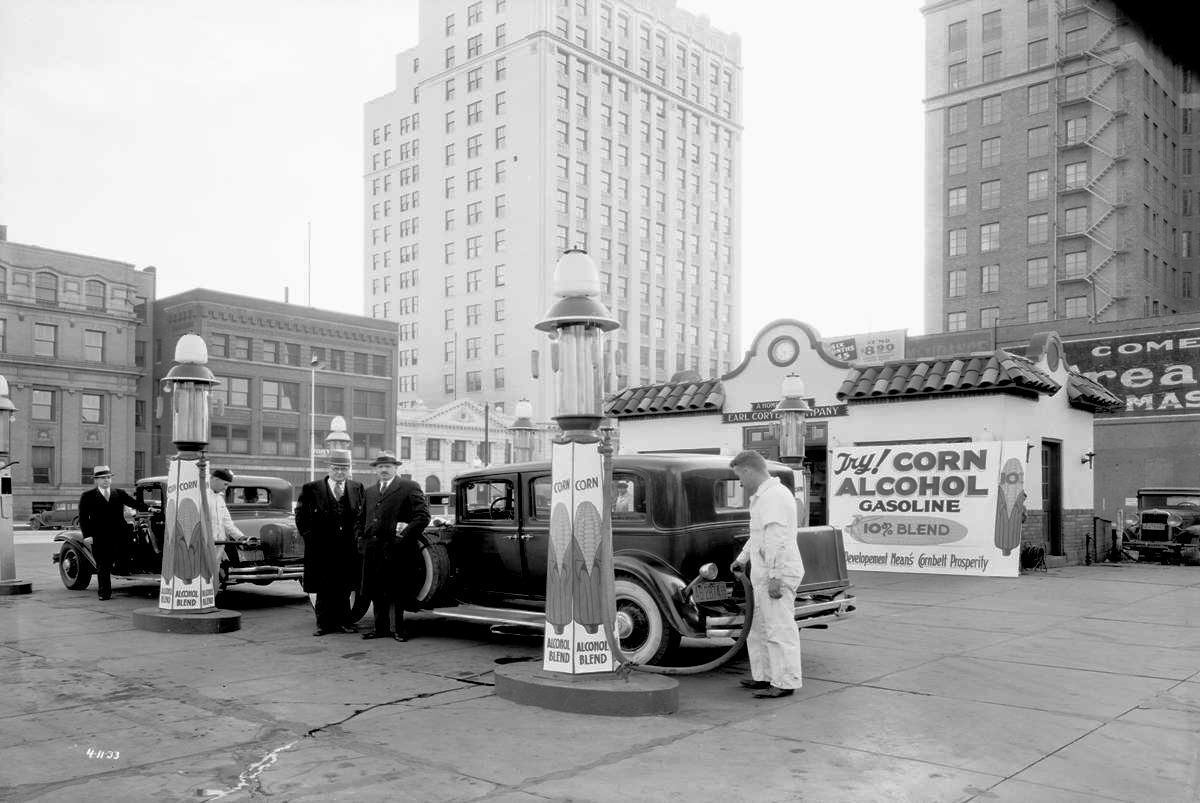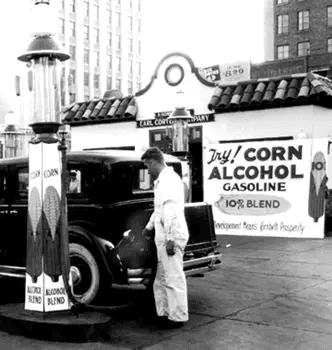The Nebraska Ethanol Board has been a key contributor to the creation, maintenance, and expansion of ethanol production for more than five decades. Read the full history report of our first 50 years (1969 - 2019) here.
1970s:
In the 1970s—in response to oil embargoes that resulted in high gas prices and inflation—leaders in agriculture, economic development, and government saw the opportunity for Nebraska to capitalize on its abundant grain resources and begin development of a renewable, domestic source of energy: ethanol.
In 1971, Nebraska state Senator Loran Schmit established the Agricultural Products Industrial Utilization Committee (APIUC)—now the Nebraska Ethanol Board (NEB)—with LB776 in the 82nd Legislature. Today, Nebraska is still the only state in the U.S. with a government agency devoted solely to the development and support of its ethanol industry.
Under the supervision of UNL's Dr. William Scheller, the APIUC's first technical advisor, the APIUC administered several landmark studies in the 1970s, including the 2-million-mile road test, the first and most credible ethanol fleet test. It served as the basis for many integral fuel tests of ethanol blends worldwide and provided supporting documentation to waivers for ethanol blends to the U.S. EPA. In 1979, the EPA approved an application co-authored by Dr. Scheller to market E10 nationwide.
1980s:
The Nebraska Legislature expanded the Nebraska ethanol development program’s scope in the late 1970s and early 1980s to capitalize on projected expansion in the ethanol industry. This included 1981's LB80, introduced by Sen. Shirley Marsh, which renamed the APIUC to the Nebraska Gasohol Committee (NGC). The NGC focused on three purposes: research, promotion, and assistance to private industries looking to construct ethanol plants. These efforts helped lead to the opening of Nebraska’s first biorefinery in Hastings in 1985.
In 1986, LB1230 created the Nebraska Ethanol Authority & Development Board (NEADB) to further help business development and establish greater ethanol production. Funds from a checkoff on Nebraska corn, sorghum, and wheat were administered by the NEADB for this purpose. The incentive did its job, attracting significant ethanol development across the state.
1990s:
LB754 in 1992 eliminated the NEADB and the original Nebraska Gasohol Committee in order to create, in 1993 via LB364, the Nebraska Ethanol Board. The NEB combines the missions of both previous organizations: economic development, research, and policy advocacy for ethanol. The NEB has helped establish numerous plants in the state through close collaboration with public power districts, the Nebraska Department of Economic Development (NDED), and industry stakeholders.
TODAY
There are 24 biorefineries statewide capable of producing 2.3 billion gallons of ethanol, 9.5 million tons of distillers grains, and 335 thousand tons of corn oil annually. Nebraska is ranked No. 2 in ethanol production volume nationally and brings an annual positive economic impact of more than 6 billion dollars to the state.
The NEB still continues its long-established expertise in renewable fuels and bio-manufacturing through research supplementing national and local initiatives. The NEB is also committed to ensuring Nebraska ethanol producers are working with the best tools for environment, health, safety and operations through trainings and workshops. The agency serves as a subject matter expert, in a neutral capacity, to public and private partners, regulators, educators, policymakers, and consumers.


